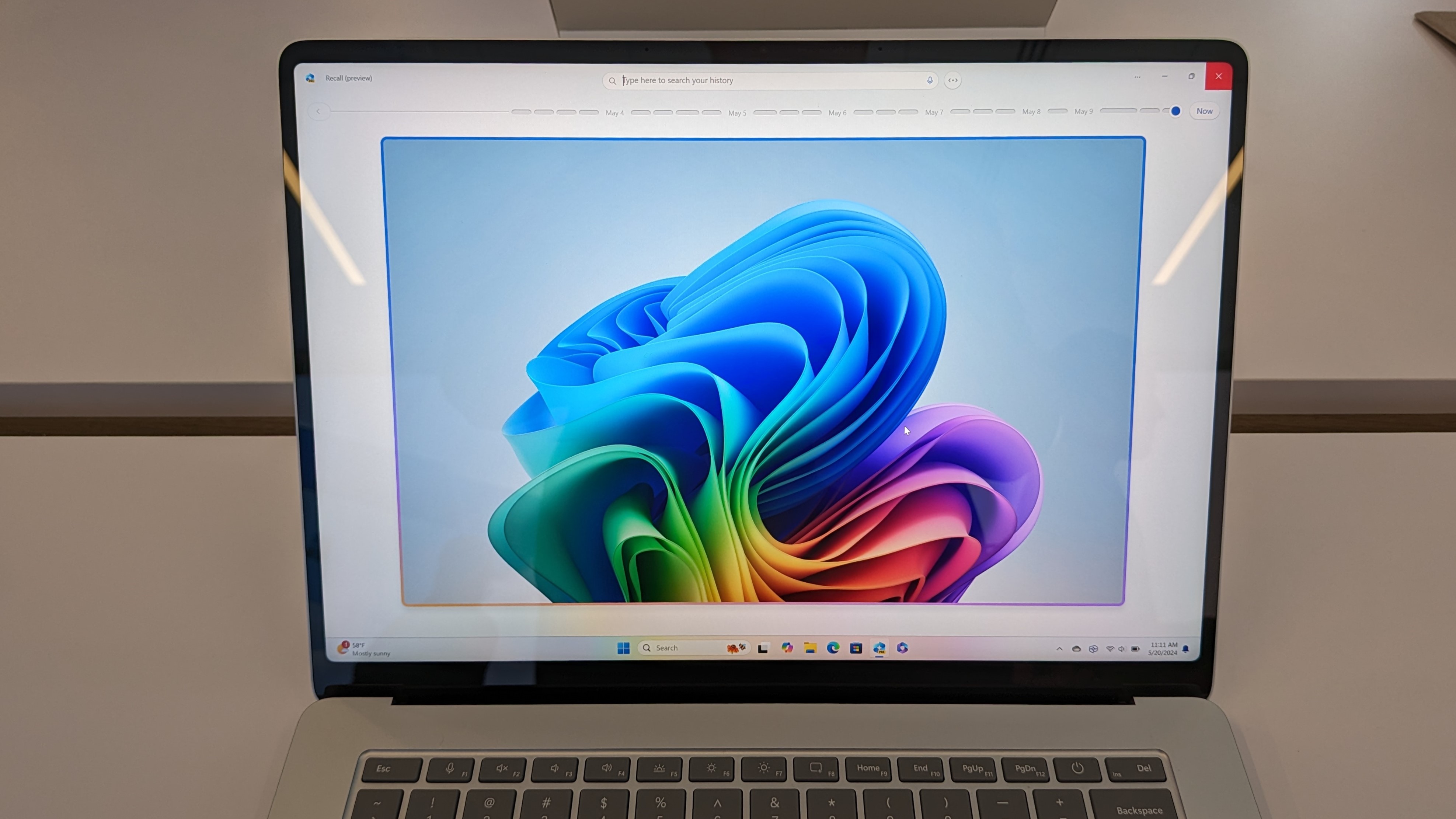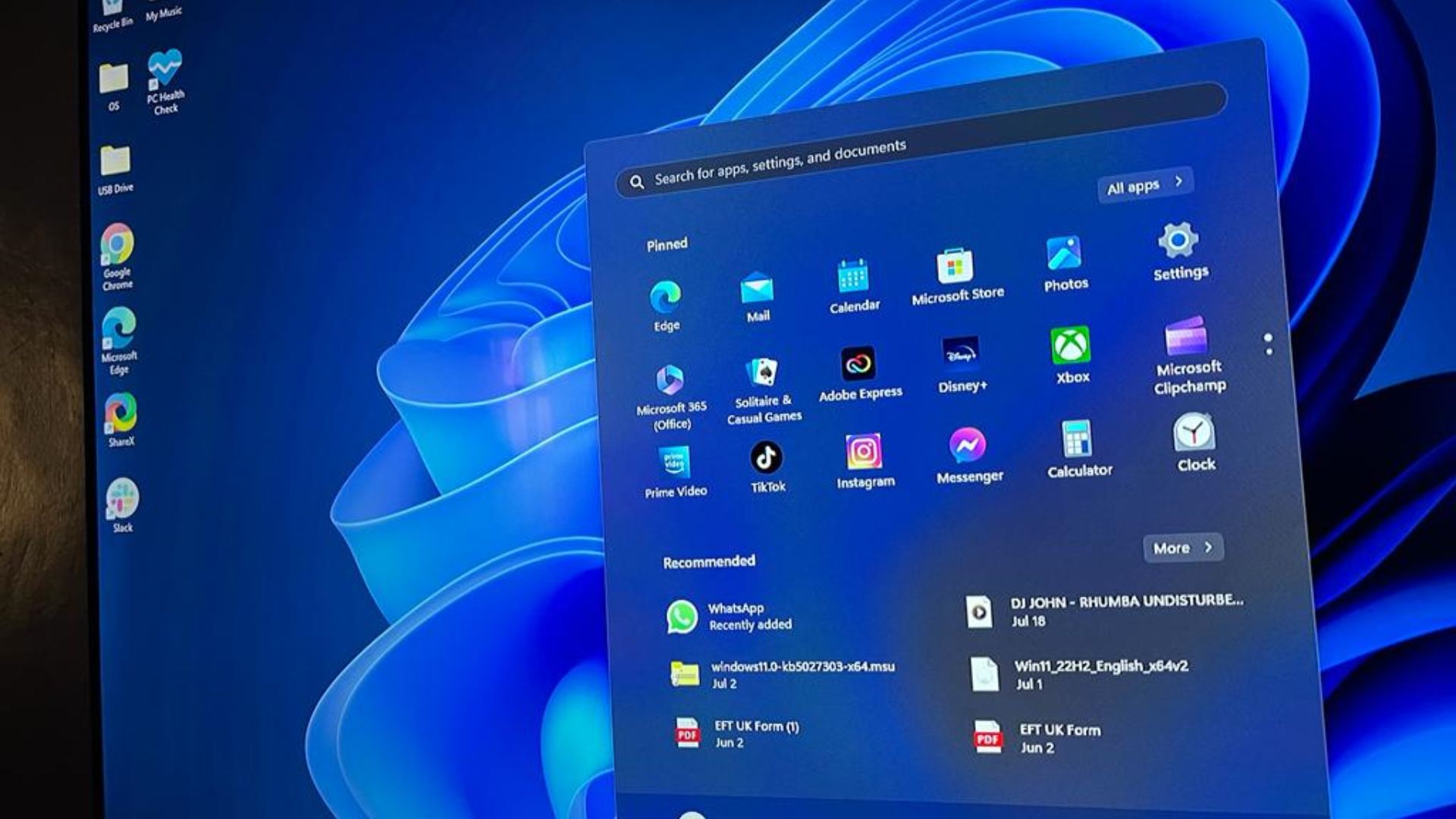
Having covered multiple Microsoft events in the past, this week's special press event where the company unveiled its new lineup of Surface hardware powered by Qualcomm's cutting-edge Snapdragon X Series SoCs (what our Editor-in-chief refers to as "The Great PC Reset") was by far the best I've seen yet.
And while we didn't get the beloved Windows Phone back or a Surface-themed variant, I'm stoked to see Microsoft go all in on Windows on Arm. We won't have to wait for long to lay hands on these shiny products, either. Microsoft promises that they will be available as early as next month.
On the Windows side of things, Microsoft is bringing a plethora of next-gen AI features to Windows 11 in June, including Recall, Live Captions, Windows Studio effects, and more. However, not everyone will have access to these sophisticated features. This is because they'll require a device with a neural processing unit (NPU) that can output up to 40 TOPS of power. Essentially, you'll need a Copilot+ PC to access them.
Is Windows 11's Recall feature diabolical?
There's no ETA on when Microsoft plans to ship these new features to 'traditional' Windows PCs in the wake of a new era of Windows PCs supercharged with AI. The Recall feature in particular caught my eye and is perhaps the most interesting feature shipping to Windows 11 next month. Simply put by our Senior Editor Zac Bowden:
"It's a tool that runs in the background and can capture snapshots of everything you see and do on your computer, enabling the ability to search for anything you've ever done on your PC with natural language."
Bowden's report also details that Recall will feature a timeline feature placed at the top of your screen that lets you scroll back based on your search input. The feature can achieve this because it has access to your screen which spans across apps, webpages, pictures, and more. Think of it like Microsoft Photos' scrollbar feature that lets you scheme through photos taken years ago in seconds, but the only difference here is that Recall has higher clearance to more than just photos.
I know, what does this mean for your privacy and security? Microsoft categorically stated that the feature is 100% privacy-focused. Simply put, the company won't use any of the data accessed by Recall to train its models.
This is because Recall runs on-device NPU, which essentially places you in the driver's seat with absolute control over how your data is handled. You can also restrict the feature from grabbing screenshots from specific apps or websites (which are stored locally on your PC). Users can also choose how long they'd like to have the screenshots stored and how much space is dedicated to this function. Lastly, you can turn off the feature if you don't find it useful.
100% privacy-focused, but concern continues to riddle users

Microsoft's just-announced Recall is a neat and handy feature that could potentially revolutionize how we interact with Windows PCs forever, saving time and resources while simultaneously promoting efficiency and effectiveness. That's one of the benefits of having access to AI anyway.
However, I've been silently keeping tabs on users' responses and reactions to the new feature. Right now, everything is sort of in the middle ground. No one is playing it too safe or throwing caution to the wind and exploring the wild side of things where an AI-powered feature spies on everything you're doing on your PC.
Users' privacy and security are warranted if the past has taught us anything.
This is a Black Mirror episode. Definitely turning this “feature” off. https://t.co/bx1KLqLf67May 20, 2024
In an interview with The Wall Street Journal's Joanna Stern, Microsoft CEO Satya Nadella indicated:
"One of the dreams we've always had is how do we introduce memory. Right? Photographic memory into what you do on your PC? And now we have it. So it's called Recall. It's not a keyword search, right, it's a semantic search over all your history. And it is not just about any document. It can recreate moments from the past essentially."
Microsoft's 100% privacy-focused promise for its Recall feature is seemingly being taken with a pinch of salt. Billionaire Elon Musk has blatantly expressed his reservations about the feature, while comparing it to a Black Mirror episode. He outrightly indicated that he'll be turning off the enabled-by-default feature once it ships.
Musk's sentiments are echoed loudly across social media platforms, with a user in Reddit's r/Windows 11 subreddit indicating that it might be time to transition to Linux from Windows after 20 years of being an avid Windows user.
I think I'm done. After 20 years of using Windows from r/Windows11
"This is ridiculous. What in the world are Microsoft executives thinking with this extreme spyware?
Just imagine: By 2025, the only PC people will be able to buy is this Copliot+ nonsense. Most people won't know about it or change their settings. And the security risk and attack surface of this thing is INSANE. And it won't censor sensitive information? This is a hacker's, law enforcement's, oppressive government's wet dream.
This is f**king outrageous.
I've been thinking about switching to Linux, but now I want to switch as soon as possible."
Microsoft's Recall feature is quite impressive, and I can't wait to try it out. It'll improve and enhance how I interact with my PC — a straightforward way to 'recall' where I saw Microsoft announcing WinUI 3 joining WPF as the recommended native UI platform for Windows in my broad list of Microsoft Build 2024 embargo documents. But the privacy and security concerns are valid, hopefully, the on-device NPU will have a definite answer.







